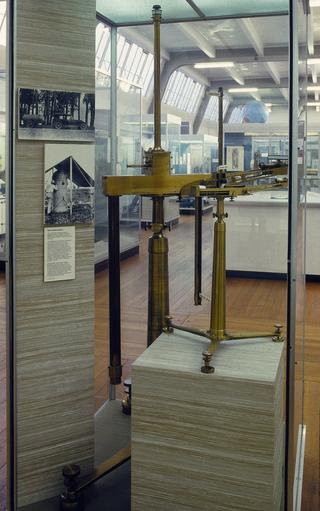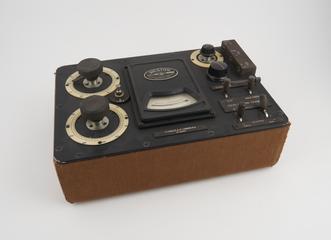
Model of Halley V Antarctic research station, 1999
- Made:
- 1999 in Peterborough
- commissioner:
- British Antarctic Survey




















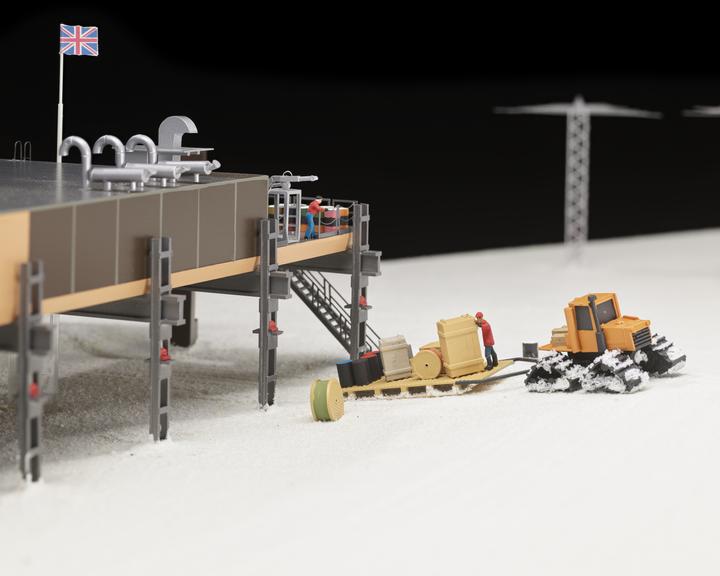
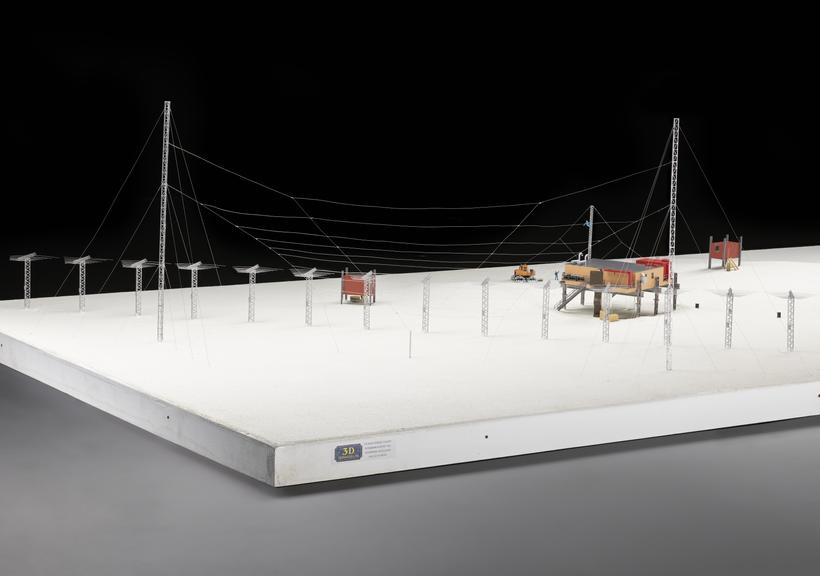



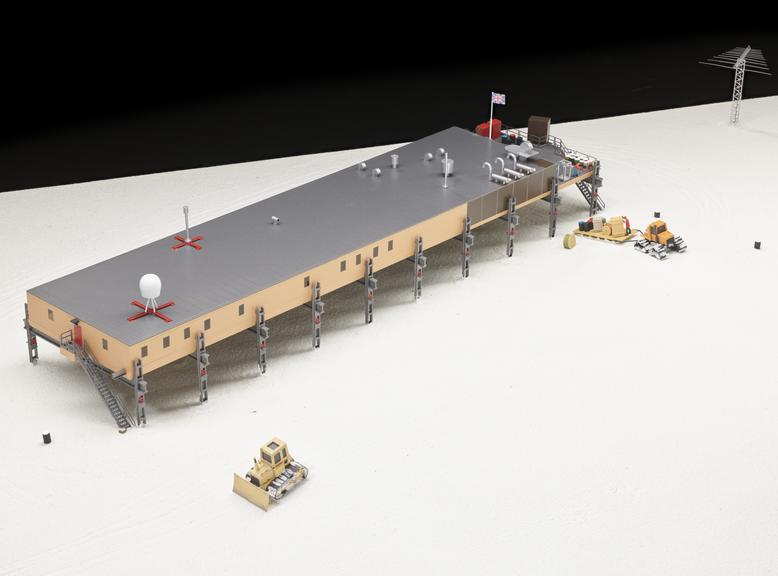













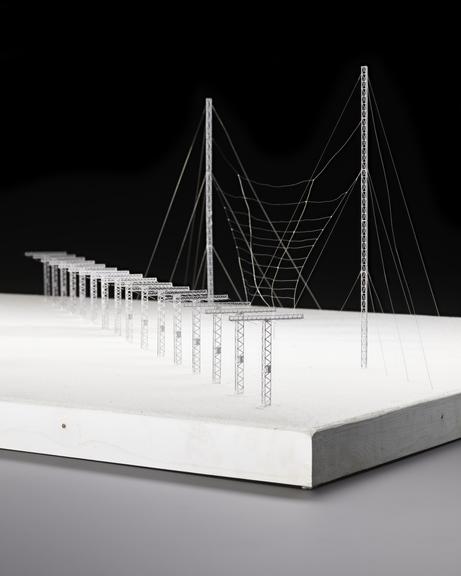
Model of the Halley V research station operated by the British Antarctic Survey, made by 3D Services, Peterborough, UK, 1999. The model is 1:100 scale, except for the SHARE radar aerials (1:200) and the dynasonde (AIS) 40 m aerials (1:300). It was exhibited at the Royal Society and in the BAS foyer. Represented in the model are: the Laws Building (for accommodation); the Simpson Building (laboratories for meteorology and ozone studies); the Piggott Building (laboratories for upper atmospheric sciences); the aerials for the Southern Hemisphere Auroral Radar Experiment (SHARE); and the vehicle garage, which is mounted on skis to avoid burial in the snow.
There has been a research station on Antarctica’s Brunt Ice Shelf since 1956, when the original Halley research base was founded by a Royal Society expedition for the International Geophysical Year of 1957-8. Halley Bay, where the expedition set up its base, was named after Edmond Halley, astronomer and Royal Society Fellow, but when the station was taken over by the Falkland Islands Dependencies Survey (later the British Antarctic Survey, or BAS) it was renamed Base Z. The research station was renamed Halley in 1977, the bay no longer existing due to changes to the ice shelf.
Halley V was the fifth station at the site. Such regular rebuilding is a result of the complexities of maintaining a station in the Antarctic environment. Approximately 1.2 meters of snow accumulate each year on the ice shelf, covering – and eventually crushing – buildings. Construction of Halley V began in January 1989 and it became operational on 19 February 1992. The buildings were constructed on platforms that can be raised to keep them above the snow levels. Two of the buildings, the vehicle garage and Drewry building (which provides summer accommodation) are mounted on skis which enable them to be repositioned.
Plans to replace Halley V began in 2002, when it became apparent that an ice calving event could threaten the site. Halley VI became fully operational in 2013, designed to be the world’s first fully relocatable terrestrial research station. Halley V was dismantled in 2012.
Data gathered at the Halley stations are not only important for understanding the Antarctic environment, but also informing global-scale climate models. Meteorological data has been gathered at Halley since 1956, with the region’s flat ice providing a unique insight into atmospheric dynamics at low altitudes. This informs the way high latitude regions are represented in general circulation models (GCMs) that underpin global weather and climate projections. Ozone has also been monitored continuously since 1956, and it was at Halley that depleted stratospheric ozone (the ‘ozone hole’) was discovered in 1985. The site also conducts geospace research, looking at the interactions of the Sun’s atmosphere with Earth’s magnetic field.
BAS commissioned this model of the Halley V research station in 1999 from 3D Services, a model-making firm in Peterborough, UK. The model was exhibited at the Royal Society, and later in the foyer of BAS’s building.
Details
- Category:
- Geophysics
- Object Number:
- 2022-1446
- Materials:
- plastic (unidentified)
- Measurements:
-
overall: 1380 mm x 2750 mm x 1550 mm, 130 kg
Model and case only: 450 mm x 2750 mm x 1550 mm,
- type:
- model - representation
- credit:
- David Brown

